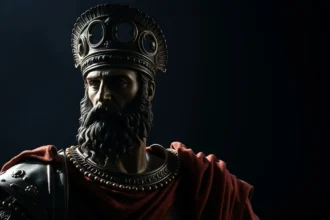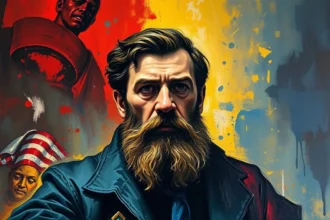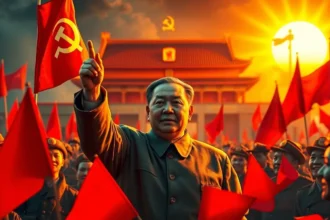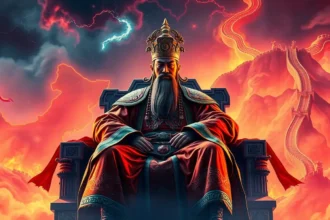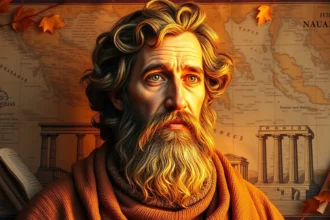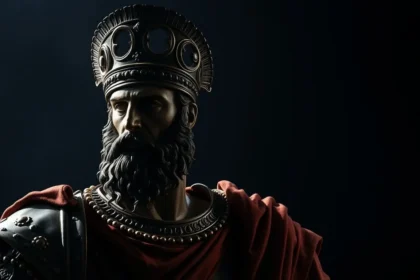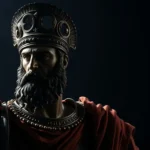Niccolò Machiavelli (1469–1527) remains one of history’s most controversial and enigmatic figures. A diplomat, political theorist, and writer, Machiavelli’s influence stretches across centuries, shaping the way we think about power, governance, and human nature. Best known for his seminal work, The Prince, Machiavelli’s contributions extend far beyond this single text. His writings and career as a diplomat highlight his profound understanding of human behavior, statecraft, and the dynamics of power, making him a pivotal figure in the evolution of political thought.
It is better to be feared than loved, if you cannot be both.
Niccolò Machiavelli, The Prince
In this blog, we’ll explore Machiavelli’s life, his career in diplomacy, his major works, and the legacy of his ideas.
Early Life and Education
Niccolò Machiavelli was born on May 3, 1469, in Florence, Italy, during the height of the Italian Renaissance. His family, though not wealthy, belonged to the Florentine nobility, which afforded him a quality education. Machiavelli was deeply influenced by the classical texts of ancient Rome and Greece, particularly the works of historians such as Livy and philosophers like Aristotle. This classical grounding would later inform his political theories.
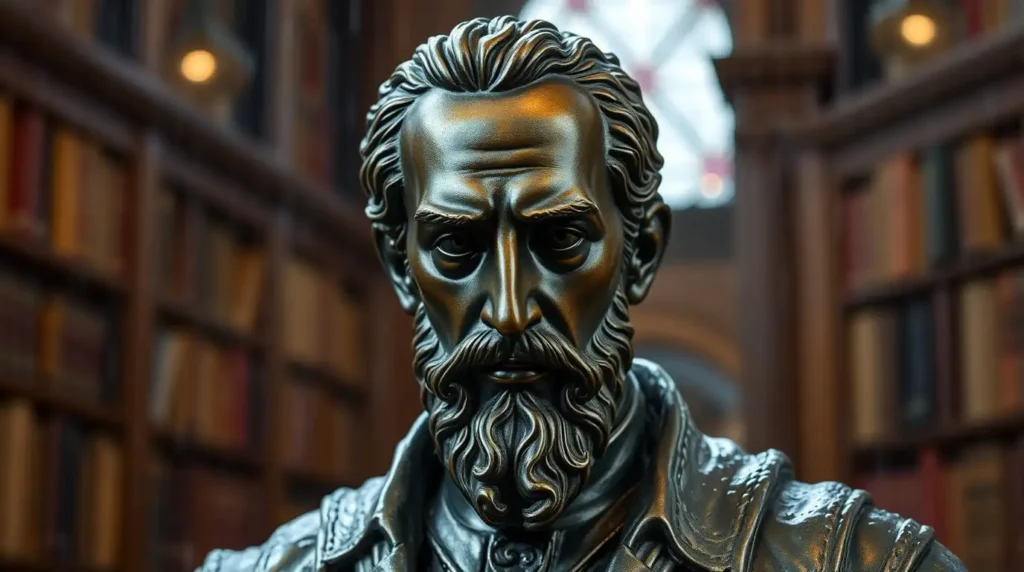
As a young man, Machiavelli lived through the turbulent political landscape of Florence. The Medici family, who ruled Florence, were temporarily ousted in 1494, creating a republican government. This period of upheaval provided Machiavelli with firsthand experience of the fragility and volatility of political power, themes that would permeate his later writings.
Diplomatic Career
In 1498, Machiavelli began his career in public service as the Second Chancellor and Secretary of the Florentine Republic. His role was primarily administrative, but it also involved significant diplomatic responsibilities. Over the next 14 years, Machiavelli undertook numerous diplomatic missions, gaining invaluable insights into the workings of foreign courts and the complexities of international relations.
Key Diplomatic Missions
- The Papal States: Machiavelli negotiated with powerful figures such as Pope Alexander VI and later Pope Julius II. These interactions offered him a front-row seat to the intersection of religion and politics.
- France: His missions to the French court exposed him to a centralized monarchy, a stark contrast to the fragmented city-states of Italy.
- Cesare Borgia: Machiavelli spent time observing Cesare Borgia, a cunning and ruthless leader. Borgia’s ability to consolidate power and command loyalty deeply influenced Machiavelli’s ideas, and he later used Borgia as a model of effective leadership in The Prince.
Machiavelli’s diplomatic career ended abruptly in 1512 when the Medici family returned to power, overthrowing the republic. Machiavelli was dismissed from his post, imprisoned on charges of conspiracy, and tortured. Though eventually released, he retreated to his family estate, where he turned to writing.
The Prince and Political Realism
Machiavelli’s most famous work, The Prince (Il Principe), was written in 1513 as a guide for rulers on how to gain and maintain power. Often described as a manual for tyranny, The Prince is far more nuanced, blending pragmatic advice with an unflinching analysis of human nature.
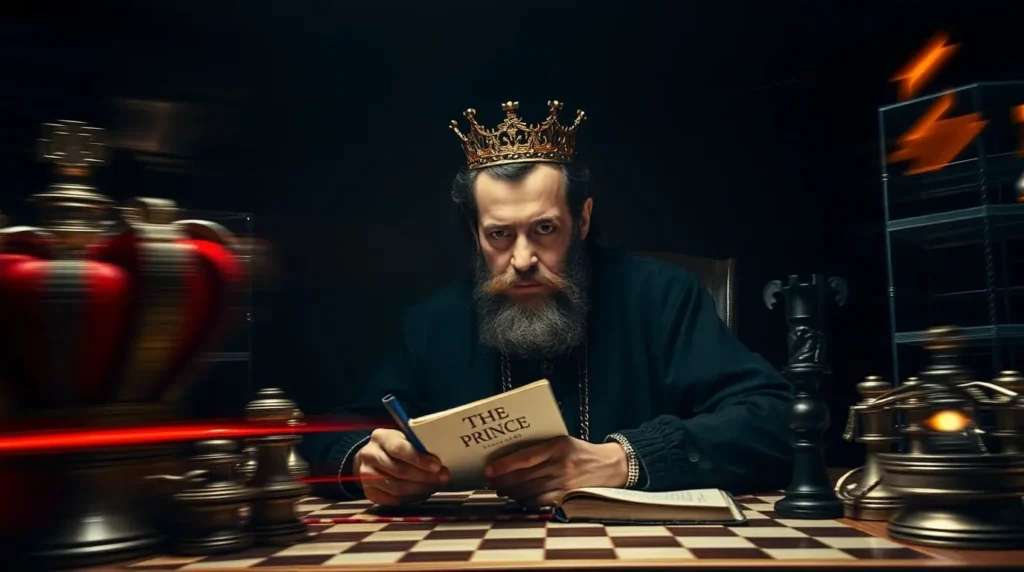
Key Themes in The Prince
- Virtù and Fortuna: Machiavelli introduced the concepts of virtù (a ruler’s skill, willpower, and decisiveness) and fortuna (luck or fate). A successful leader, he argued, must skillfully navigate these forces to achieve their goals.
- The Ends Justify the Means: Though Machiavelli never explicitly used this phrase, it encapsulates his belief that moral considerations must often be set aside for the sake of political necessity.
- The Nature of Power: Machiavelli described power as both fragile and essential. He argued that leaders must be willing to use deceit, manipulation, and cruelty when necessary to secure their rule.
- Fear vs. Love: One of The Prince’s most famous assertions is that it is better for a ruler to be feared than loved if they cannot be both. Fear, he argued, is a more reliable tool for maintaining control.
While The Prince shocked contemporaries with its apparent cynicism, it was not simply a defense of despotism. Rather, it was a pragmatic reflection on the realities of power in a fragmented and chaotic political world.
Other Works and Contributions
Machiavelli’s intellectual output extended well beyond The Prince. His other writings reveal his broader concerns with history, governance, and human nature.
The ends justify the means.
Niccolò Machiavelli
Discourses on Livy
In contrast to the autocratic tone of The Prince, Machiavelli’s Discourses on Livy explored the benefits of republicanism. Drawing on the history of ancient Rome, he argued that a republic, with its checks and balances, was a more stable and enduring form of government than a monarchy. Discourses emphasized the importance of civic virtue, active citizenship, and the rule of law.
The Art of War
Machiavelli was also a military theorist. In The Art of War, he advocated for citizen armies over mercenaries, arguing that a state’s military strength was inseparable from its moral and civic foundation. This work reflected his belief in the integration of military and political strategy.
Histories, Plays, and Letters
Machiavelli’s History of Florence provided a detailed account of the city’s political evolution, blending historical analysis with sharp commentary. He also wrote plays, such as The Mandrake, showcasing his wit and keen understanding of human folly. His letters, meanwhile, offer a glimpse into his personal struggles and unyielding passion for politics.
Legacy and Controversy
Machiavelli’s legacy is complex and multifaceted. The term “Machiavellian” has become synonymous with cunning, duplicity, and ruthless pragmatism, yet this caricature fails to capture the depth of his thought.
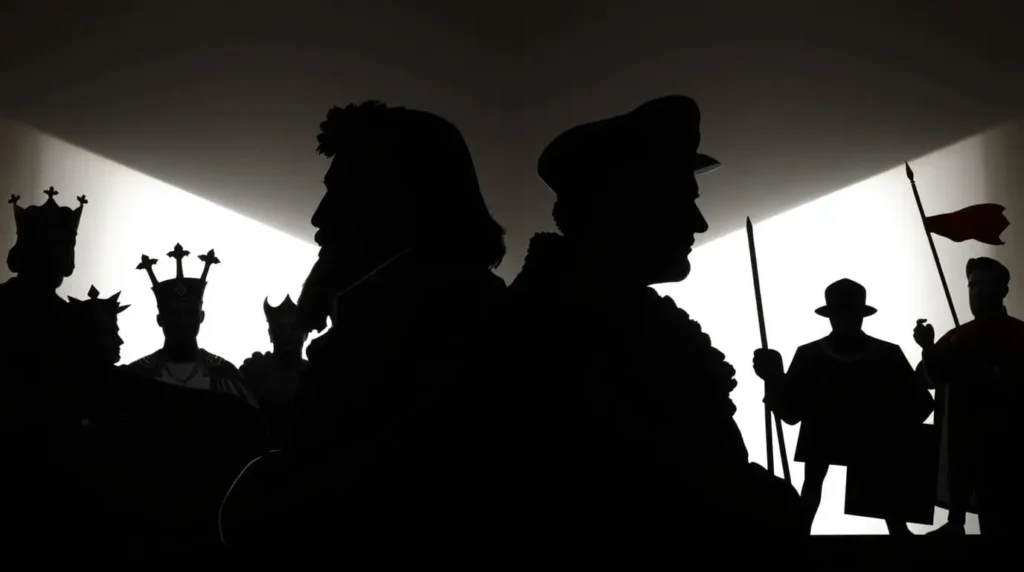
Influence on Political Thought
Machiavelli is often credited as the father of modern political science because he divorced politics from morality, focusing instead on empirical observation and practical solutions. His ideas influenced Enlightenment thinkers like Hobbes, Rousseau, and Montesquieu, as well as modern leaders and strategists.
Controversy and Misinterpretation
Many of Machiavelli’s ideas were misunderstood or deliberately distorted. For instance, The Prince was condemned by the Catholic Church and placed on its Index of Prohibited Books, further cementing his reputation as a promoter of immorality. However, some scholars argue that The Prince was intended as satire or a critique of tyranny, rather than an endorsement.
Relevance in the Modern World
Machiavelli’s insights remain strikingly relevant in contemporary politics and leadership. His understanding of power dynamics, the role of public perception, and the necessity of adaptability resonate in fields ranging from corporate strategy to international relations. Leaders today still grapple with the tension between ethics and pragmatism, a theme Machiavelli explored with unparalleled clarity.
Breaking Down the Barrier
Niccolò Machiavelli was far more than a cold advocate of realpolitik. He was a profound thinker who grappled with the complexities of human nature and the challenges of governance in a chaotic world. His works continue to provoke debate, offering timeless lessons on leadership, power, and the interplay between ethics and necessity.
Whether one views Machiavelli as a cynical manipulator or a clear-eyed realist, his contributions to political thought are undeniable. By confronting the realities of power head-on, Machiavelli carved out a space in history as one of the Renaissance’s most influential—and misunderstood—figures.
Additional Resources
Here are additional resources with hyperlinks for easy exploration of Niccolò Machiavelli, his works, and his influence on political thought and philosophy:
Books and Biographies
- Machiavelli: A Biography by Miles J. Unger
A comprehensive biography exploring Machiavelli’s life, work, and the historical context of Renaissance Italy. - The Cambridge Companion to Machiavelli edited by John M. Najemy
A collection of essays that examine Machiavelli’s ideas and their relevance to modern political theory. - Machiavelli and His Friends: Their Personal Correspondence translated by James B. Atkinson and David Sices
A glimpse into Machiavelli’s personal life and relationships through his letters. - The Prince: A Norton Critical Edition edited by Robert M. Adams
A definitive edition with annotations and critical essays on The Prince.
Online Articles and Encyclopedias
- Stanford Encyclopedia of Philosophy: Niccolò Machiavelli
An in-depth analysis of Machiavelli’s philosophical contributions and key concepts. - Internet Encyclopedia of Philosophy: Machiavelli
Explores Machiavelli’s political thought, major works, and influence on philosophy. - History Extra: Machiavelli and The Prince
A concise introduction to Machiavelli’s most famous work and its historical significance. - BBC History: Niccolò Machiavelli
An accessible summary of Machiavelli’s life and ideas.
Documentaries and Videos
- Machiavelli: The Father of Modern Political Science
A documentary exploring Machiavelli’s influence on modern politics. - The Prince: A Guide to Power
A YouTube video analyzing the central ideas of The Prince. - BBC Documentary: Renaissance Florence and Machiavelli
Examines the context of Machiavelli’s life and work within Renaissance Florence. - Machiavelli’s Legacy: Power and Politics
A video discussing how Machiavelli’s ideas influence political theory today.
Free Online Texts and Translations
- The Prince by Niccolò Machiavelli (Translated by W.K. Marriott)
Full English translation of The Prince available for free on Project Gutenberg. - Discourses on Livy (Translated by Ninian Hill Thomson)
A complete English translation on Liberty Fund. - The Art of War by Niccolò Machiavelli
A free version of Machiavelli’s treatise on military strategy. - Letters of Niccolò Machiavelli
A collection of Machiavelli’s correspondence, providing insight into his personal and professional life.
Academic Articles and Journals
- JSTOR: Studies on Machiavelli
A repository of scholarly articles analyzing Machiavelli’s work and impact. - Academia.edu: Machiavelli and Modern Politics
A collection of academic papers discussing Machiavelli’s relevance to contemporary politics. - Project MUSE: Machiavelli and Political Realism
Articles examining Machiavelli’s approach to power and realism. - The Political Science Quarterly: The Legacy of Machiavelli
Scholarly discussions on how Machiavelli’s ideas shape political science.
Cultural and Historical Context
- Florence: Birthplace of the Renaissance
Explore the city where Machiavelli lived and worked. - The Medici Family: Power and Patronage
Learn about the Medici dynasty and their influence on Renaissance Florence. - Cesare Borgia: Machiavelli’s Inspiration
An overview of Cesare Borgia’s life and his role in shaping Machiavelli’s ideas. - The Political Landscape of Renaissance Italy
A historical overview of the fragmented city-states that influenced Machiavelli’s thought.
Interactive Resources
- Machiavelli and Power Dynamics: An Interactive Guide
Explore key concepts from The Prince with interactive examples. - Digital Atlas of Renaissance Italy
A detailed digital map of Italy during Machiavelli’s time. - Mapping The Prince
Visualize the political entities and figures referenced in The Prince. - The Machiavelli Project
A collaborative digital effort to analyze and contextualize Machiavelli’s works.
These resources offer diverse perspectives and tools for delving deeper into Machiavelli’s life, works, and enduring legacy.
Must Read : Pausanias: Captivating Stories



